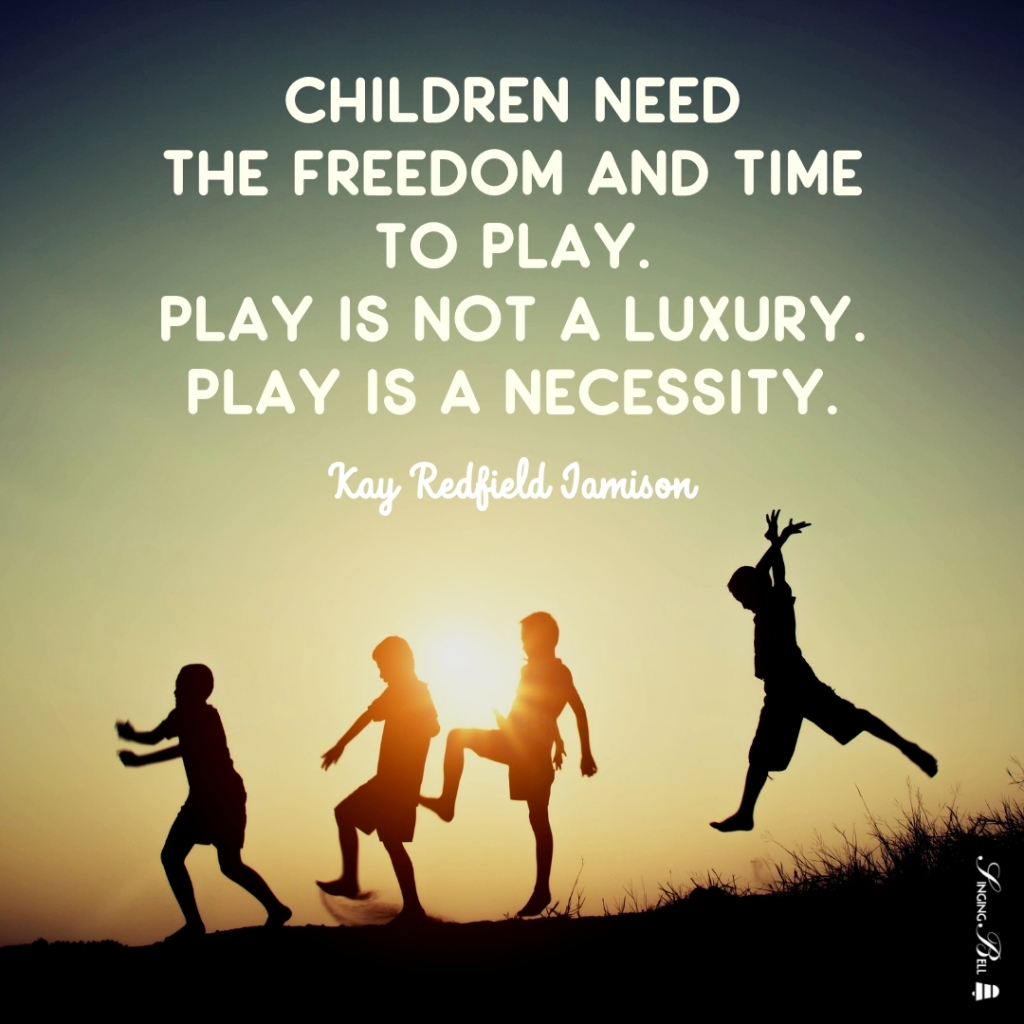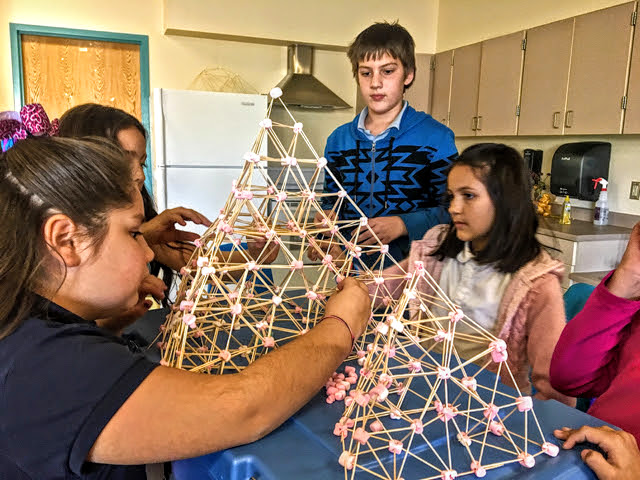Posts Tagged ‘fun’
Sometimes Kids Just Need to Play During School

Teachers get so much pressure to meet standards and prepare students for state mandated tests, that I believe they forget their students are just kids. Because of this pressure, too many teacher education and professional development strategies stress the concept of time on task. For example, see Identifying (and Engaging Students in), Time-on-Task Activities, Increasing Time on Task, and Time on Task. This has some importance in teaching and learning but it shouldn’t always be the professed key to good instruction. This leaves little time for play. Play is important for students of all ages and grades.
This week I was reminded of the importance of playing and having fun; and that play and fun are determined by the kids, themselves. I planned a math lesson based on visual patterning, The concluding activity was for them to make a Fractal Tetrahedron, a marshmallow-toothpick tower. I had planned to have them work on it during a series of math classes, but they asked to stay through lunch and recess to work on it.
I started working with this group of gifted middle school students in January. I always have a goal of engaging learners as I believe it is the foundation of all good learning. I have had difficulty engaging them even with the use of Breakout EDU escape boxes, art activities, and games. Some engaged. Some did not. This marshmallow-toothpick activity brought a new energy into this group. All of them participated. They worked together. They laughed. They excitedly kept building and building. They added pieces to it that weren’t part of the plan. They played and had fun. A new group and classroom dynamic emerged which I believe was due with just letting them play with this project.
I discussed the beauty of spontaneous play (lots of play is spontaneous) in An Education Filled with Wonder:
One day I was substituting for a 2nd grade class. It had begun to snow as we arrived to school that morning. By mid-morning, a few inches covered the ground. It was time for recess but, as expected, a voice came over the intercom to state that recess would be inside within each teacher’s classroom. I heard the kids moan as they came to school dressed for snow with boots and winter jackets. I threw caution into the wind. I asked the kids to bundle up so we could go outside. The kids became . . . well, kids. They ran through the fresh snow in the huge back-of-the-school play area with no other students out there. They examined the footprints they created in the snow. When one found something of interest, they called the others over to see. They caught snow flakes with their tongues and made snow angles. There were no conflicts nor arguing as was common to this group of kids. They just ran, played, and laughed together as a unified group reminding me of a flock of geese. I watched them with a tear in my eye, one that reflected the beauty I was witnessing.
I wonder (even though I intuitively know the answer) whether learners in their adulthoods will better remember the types of activities I described above or their very structured time-on-task classroom activities.
The Harvard Graduate School of Education discussed the importance of play in Playing to Learn: How a pedagogy of play can enliven the classroom, for students of all ages:
Play and school can seem diametrically opposed. School is structured, often focused on order; play, by definition, is not.
But within this paradox of play and school, educators can find meaningful learning opportunities, advancing students’ academic skills as well as the social skills that will allow them to thrive in adulthood and enjoy their childhood now, according to researchers from Project Zero (PZ), a research center at the Harvard Graduate School of Education.
“Play is a strategy for learning at any age,” says Project Zero’s researcher Mara Krechevsky. While older students and their teachers might have more curricular demands than younger students, playful learning still has an important role to play — it might just look different.
There is a universality to play: children are often more relaxed and engaged during play, and it’s enjoyable — all aspects that facilitate learning.
I think most educators innately know about the importance of play but according to many of them, they don’t have the time during the school day to permit kids to play outside of recess . . . but I ask, “What are the costs of not permitting them to play?”


